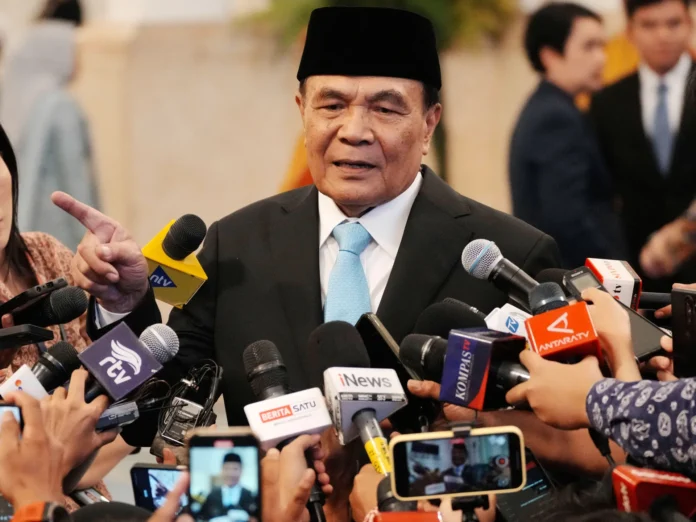Indonesian President Prabowo Subianto has appointed former rival and retired general Djamari Chaniago as the country’s new coordinating minister for politics and security, following violent protests that left 10 people dead last month.
Subianto announced the appointment on Wednesday, removing Budi Gunawan from the post after he was dismissed earlier this month. Gunawan’s sacking came in the wake of late August demonstrations that spiraled into unrest over economic grievances.
Public anger erupted after revelations that lawmakers were receiving a $3,000 monthly housing allowance in addition to their salaries, a benefit worth up to 20 times the minimum wage in parts of Indonesia. The protests turned deadly when a motorcycle delivery driver, 21-year-old Affan Kurniawan, was struck and killed by a police vehicle during clashes in Jakarta.
The unrest forced a sweeping cabinet shake-up, with five ministers losing their posts, including Finance Minister Sri Mulyani Indrawati, a widely respected technocrat and former senior official at the International Monetary Fund and World Bank.
By turning to Chaniago, Subianto appears intent on consolidating his hold on power while filling critical positions with loyalists and military figures. His administration has increasingly leaned on the armed forces, not only for handling protests but also for carrying out social programs such as free school meals, food security projects, medicine production, and the seizure of palm oil plantations for a new state firm.
Chaniago is a familiar figure in Indonesia’s political and military history. He was part of the Officers Council of Honor in 1998, which investigated the abduction of pro-democracy activists during the final months of President Soeharto’s regime. That inquiry concluded that Subianto, then a commander in the elite Kopassus unit, had “misinterpreted orders” from his superiors. He was discharged later that year, while several of his subordinates were tried and convicted.
Twenty-two activists were abducted in 1998, and 13 remain missing. Subianto, who went into self-imposed exile in Jordan at the time, has never stood trial over the case.
Chaniago went on to replace Subianto as head of the Army Strategic Reserve Command in May 1998, at the height of Indonesia’s political crisis following Soeharto’s fall. His return to government today underscores the enduring influence of Indonesia’s old military guard in shaping the country’s turbulent present.

